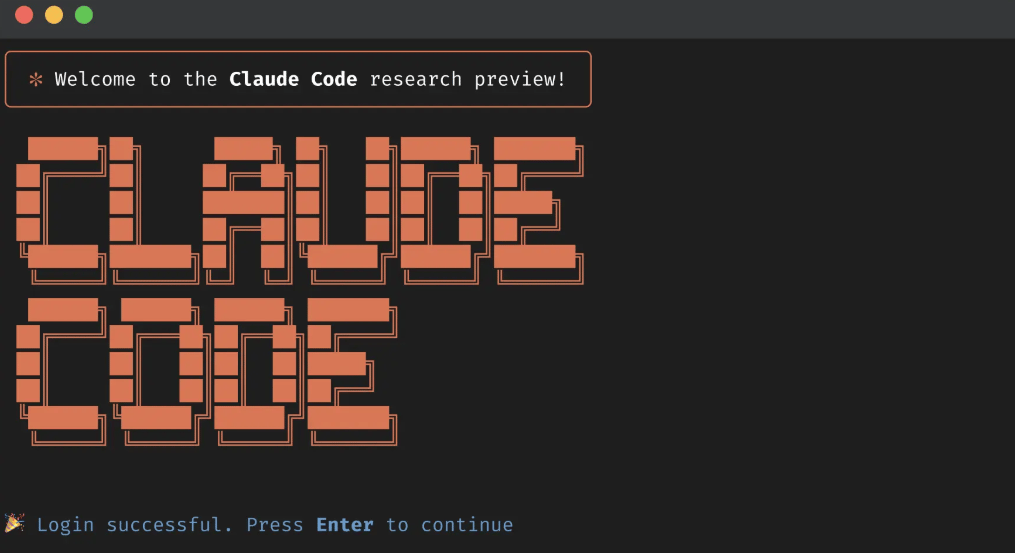
Hello, tech trendsetters!
Anthropic launches Claude 3.7 Sonnet, the first AI that lets users control its reasoning speed. Alibaba’s QwQ-Max goes open-source, pushing structured thinking forward. Google’s Gemini Code Assist outshines Copilot with a free AI coding tool, and Hugging Face’s SmolVLM2 brings powerful video AI to everyday devices. AI is getting smarter, more accessible, and more competitive than ever.
In today’s Generative AI Newsletter:
Google’s Free AI Coding Assistant Challenges Copilot
Alibaba’s QwQ-Max Brings Open-Source Reasoning to the AI Race
Claude 3.7 Sonnet: AI That Thinks On Demand
Hugging Face’s SmolVLM2 Shrinks Video AI to Run Anywhere
Lead the AI Revolution—By Doing, Not Just Learning
AI is transforming industries, yet 84% of professionals feel behind. Why? Traditional courses focus on theory—not real impact.
At GenAI.Works, we take a hands-on approach with guidance from experts at Stanford, Google, and Amazon to help you:
✅ Build real-world AI solutions
✅ Tackle industry challenges through practical projects
✅ Gain recognition and lead the AI future
🎯 Your learning. Your pace. Your success.
🧠 Claude 3.7 Sonnet Introduces ‘Hybrid Reasoning’ AI That Thinks On Demand

Image source: Anthropic
Anthropic has launched Claude 3.7 Sonnet, the world’s first ‘hybrid reasoning’ AI model, allowing users to toggle between instant responses and extended thinking. Unlike traditional AI models, Claude 3.7 Sonnet lets users control how long it "thinks", bringing a new level of flexibility to AI problem-solving.
💡 Why this matters:
AI that adapts to complexity – Users can switch between quick answers and in-depth reasoning, with API access allowing precise control over thinking time (up to 128K tokens).
Superior coding performance – Achieves SOTA (state-of-the-art) results on real-world coding tasks like SWE-Bench (62.3% accuracy vs. OpenAI’s o3-mini at 49.3%).
More responsive, less restrictive – Refuses fewer questions than previous models, with 45% fewer unnecessary refusals compared to Claude 3.5 Sonnet.
A major developer push – Anthropic also launched Claude Code, an agentic coding tool that can edit files, run tests, and push code to GitHub—all via simple commands.
Anthropic is rolling out Claude 3.7 Sonnet just as the AI model race accelerates. Known for its careful, safety-driven approach, the company now seems determined to take the lead.
Would you rather your AI respond instantly or take its time to think?
👁️🗨️ Alibaba’s QwQ-Max Joins the AI Reasoning Race—And It’s Open-Source

Image Source: Alibaba
Alibaba’s Qwen team has launched QwQ-Max-Preview, a deep reasoning AI designed for math, coding, and complex problem-solving. Unlike closed-source competitors, Alibaba plans to open-source QwQ-Max and Qwen2.5-Max, making high-level AI freely available.
💡 Why this matters:
AI reasoning battleground – QwQ-Max challenges Anthropic’s Claude 3.7 Sonnet and OpenAI’s o-series by enabling structured, step-by-step reasoning.
Outperforms OpenAI in coding – Scored 65.6 on LiveCodeBench, surpassing OpenAI’s o1 Medium (63.4) and o3 Mini Low (60.9).
More transparency in AI thinking – The "Thinking (QwQ)" mode in Qwen Chat lets users see how the AI processes problems in real-time.
Bringing reasoning AI to mobile – A Qwen Chat app for iOS & Android is coming, expanding consumer access to reasoning-based AI.
Alibaba’s $52B AI investment signals China’s growing influence in the global AI race. As open-source AI advances, will proprietary models like ChatGPT stay ahead—or will free, powerful models disrupt the industry?
💻 Google’s Free AI Coding Assistant Outshines GitHub Copilot

Image Source: Google
Google has launched Gemini Code Assist for Individuals, a free AI coding assistant that offers massively higher usage caps than GitHub Copilot’s free plan. With 180,000 code completions per month (90x GitHub’s limit) and 240 chat requests per day, Google is making AI-powered coding more accessible than ever.
💡 Why this matters:
AI coding is becoming essential – Google reports 75% of developers now rely on AI, with 25% of Google’s own code AI-generated and human-reviewed.
Beats GitHub Copilot in capacity – Gemini Code Assist provides a 128K-token context window (4x bigger than competitors), allowing it to handle larger, more complex codebases.
Integrated across major dev tools – Available in VS Code, JetBrains, Firebase, and Android Studio, with GitHub integration for automated AI code reviews.
Google’s long-term strategy – By offering a powerful free tier, Google aims to attract early-career developers, hoping they’ll eventually upgrade to paid enterprise plans.
As AI coding tools become standard, Google is positioning Gemini Code Assist as a developer-first alternative to Copilot.
🎥 SmolVLM2—The Smallest Ever Video AI Model

Image Source: Hugging Face
Hugging Face researchers have introduced SmolVLM2, the smallest AI model family for video understanding, designed to run on everyday devices like phones and laptops—without relying on cloud servers.
💡 Why this matters:
AI-powered video analysis on your phone – SmolVLM2 runs directly on iPhones, laptops, and basic hardware, no supercomputers required.
Tiny but powerful – The smallest model is just 256M parameters, while the 2.2B flagship model outperforms similarly-sized competitors on key benchmarks.
Built for real-world use – Includes an iPhone app for video analysis and natural language navigation for searching within videos.
Flexible deployment – Available in MLX for Apple devices, with Python and Swift APIs ready for developers.
As AI models get smaller, faster, and more private, SmolVLM2 signals a shift from cloud-dependent AI to powerful on-device intelligence.

🚀 Boost your business with us—advertise where 10M+ AI leaders engage
🌟 Sign up for the first AI Hub in the world.


